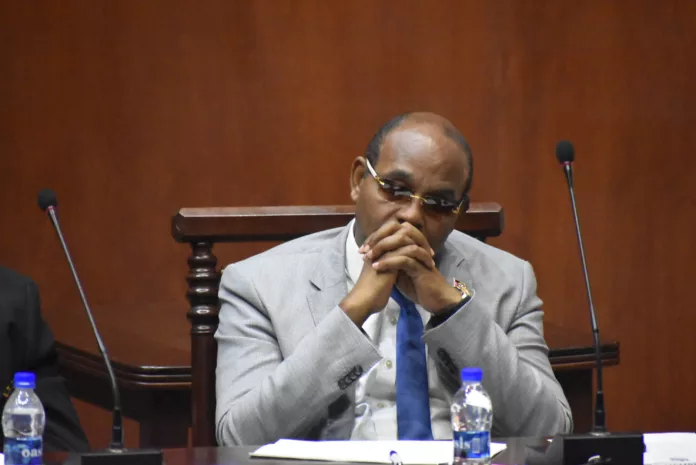Prime Minister Gaston Browne is standing behind recent remarks regarding the war between Ukraine and Russia, claiming that his words were taken out of context and manipulated by his political opponents.
Last week, the Prime Minister suggested that Ukraine may have to surrender to Russia due to the number of casualties resulting from the ongoing conflict, also stating that Ukrainian President Volodymyr Zelenskyy was “wrong” for seeking to join the North Atlantic Treaty Organisation.
He also said that if he was the Ukrainian leader, he couldn’t envision himself subjecting his country to the “level of destruction” experienced as a result of what he described as a “senseless” war.
Addressing his statements once again on his weekly radio programme, the Prime Minister said
“This is a war in which one country is actually suffering all the destruction. If you go to Russia, Russia is unscathed and we all know that Russia has greater firepower than the Ukrainians and we always knew that Ukraine was no match for Russia,” he restated on his programme.
Numerous US media outlets have reported that US officials has repeatedly requested of Ukraine against the use of its American supplied weapons on any attack inside Russia, including a May 2023 report by Reuters which Chairman of the US Joint Chiefs of Staff, Army General Mark Milley stated as such.
This followed accusations by Russia at the time that pro-Ukrainian militia had used US armored vehicles to carry out attacks.
The Prime Minister, meanwhile, said that his comments were misconstrued and were said in the context of the “Cuban missile crisis.”
“The late [John F. Kennedy] demanded that the Russians remove their missiles from Cuba right under the doorstep that I could understand the Russian position at the time where they didn’t want the Ukrainians to join NATO and to have NATO establish any military base or any installation on their doorstep,” he said.
Although Ukraine and NATO relations started in 1991, there had been no formal application to join NATO until September 2022.
Additionally, Ukrainians have long been cautious about joining the military bloc until the annexation of Crimea in 2014 which saw an increase in favourability among the population for joining NATO—as noted by several international media reports.
He also sought to clarify his “surrender” comments, stating that “saying that they may have to surrender is not stating that they should surrender.”
“And why did I say they may have to surrender? Because they are suffering all of the physical damages in terms of infrastructure… and if you have a conflict, the aggressor who is literally destroying the other is not going to quit. It must be the one who is suffering most of the damages invariably will quit,” he said.
Following the Prime Minister’s comments, Antigua and Barbuda’s US Ambassador Sir Ronald Sanders, Foreign Minister Chet Greene, and his government, had released a statement expressing empathy and support for the Ukrainian people and their cause.
The Prime Minister said that his statement did not fall afoul of his ambassador’s comments, arguing that his administration has continued to maintain solidarity with the rest of the international community on this issue, maintaining a non-intervention stance.
“Ukraine continues to enjoy the support of Antigua and Barbuda and that is why, too, we have been collaborating too with the international community, all the UN resolutions… we have sanctioned Russians who have been using our CIU units, so we no longer process Russian applications, we don’t even engage Russian diplomats,” he said.
The Prime Minister went on to attack his political rivals and media outlets who reported on his statements, highlighting that he maintains his Constitutional right to free speech.
Meanwhile, the Prime Minister also used the issue to note that the financial support that Ukrainians have received from the US has been dwindling.
“Let us understand, you know, that every cent that the United States invested all these billions of dollars…in this senseless war is less money to deal with other existential threats facing the planet, including the issue of climate change, and it is less money to assist developing countries globally,” he said.

